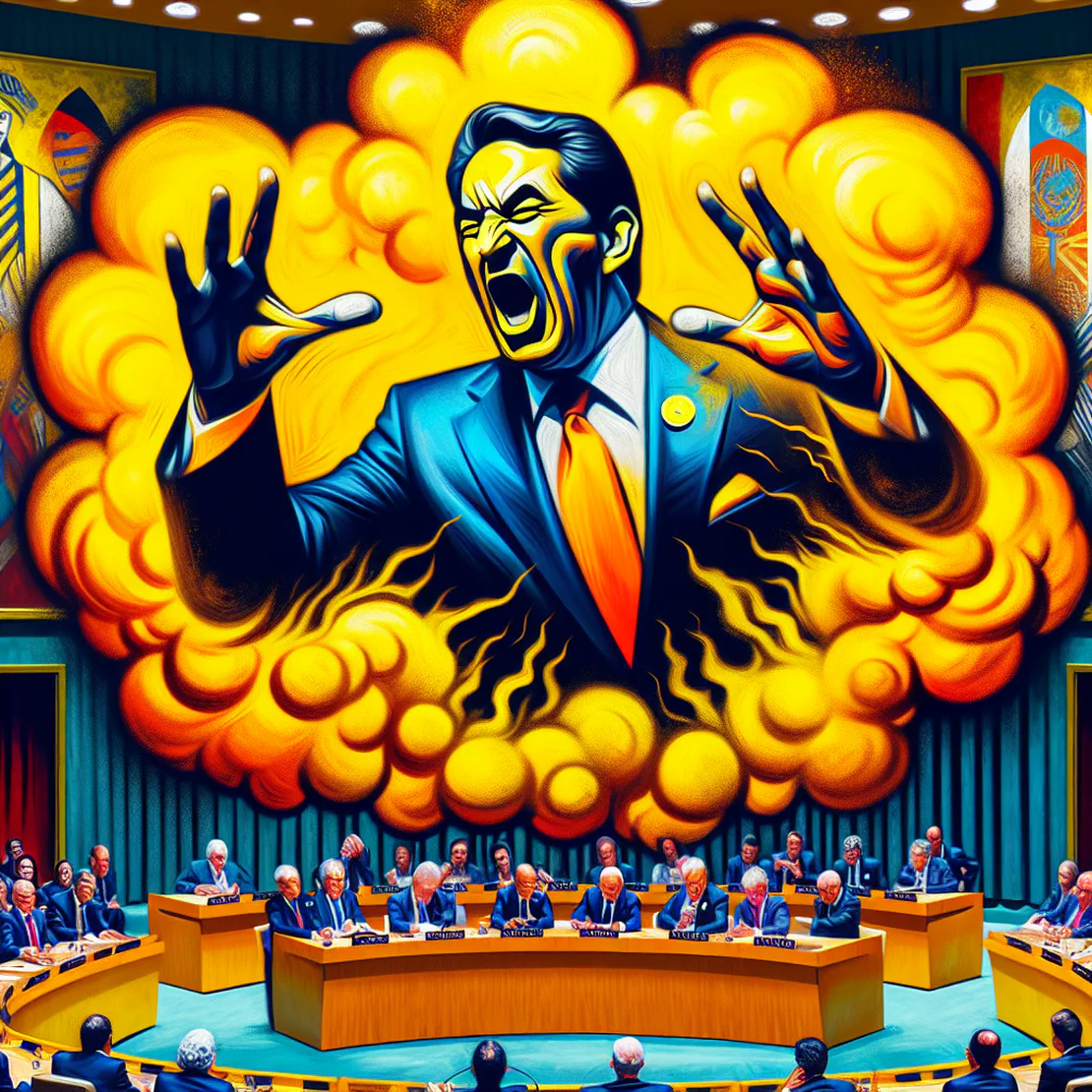
How Venezuela imploded
- Planet Money
- Venezuela , Politics
- October 2, 2024
Table of Contents
At a Glance
-
Economic Collapse - ‘Collapse is probably a better word.’ This highlights the severity of the economic situation in Venezuela, emphasizing that it’s not just a downturn but a complete collapse.
-
Chávez’s UN Speech - ‘I can still smell the sulfur.’ This is a humorous yet poignant moment showcasing Hugo Chávez’s dramatic rhetoric at international forums.
-
Oil Dependency - ‘Why make it yourself? When you could just buy the import with very cheap dollars.’ This quote emphasizes the economic mismanagement and over-reliance on oil revenue, setting the stage for economic failure.
-
Hyperinflation - ‘By 2018, it was estimated that inflation peaked at 65,000 percent.’ Highlights the extreme level of hyperinflation, illustrating the depth of economic instability.
-
Dollarization of the Economy - ‘American dollars allowed people to plan for the future again.’ This point underlines a significant shift in the Venezuelan economy and how it brought some stability.
-
Inequality Exacerbated - ‘If you have access to the dollarized economy… But if you’re shut out of that, you continue to struggle.’ This illustrates the growing economic divide based on access to dollarized resources.
What to Do
-
‘Plan around blackouts and water outages’ - This advice is practical for operating under less-than-ideal conditions, emphasizing adaptability and preparedness in crisis situations like those faced in Venezuelan hospitals.
-
‘Bring everything you need from home when visiting hospitals’ - This advice underlines self-sufficiency and ensures personal safety and care in environments where resources are scarce or unreliable.
-
‘Convert earnings into a more stable currency’ - This advice is given in the context of hyperinflation, where maintaining the value of one’s earnings is crucial for financial survival and stability.
-
‘If possible, diversify the economy and not rely solely on one industry’ - This advice is implicit in the discussion of Venezuela’s over-reliance on oil, which led to economic collapse when the oil industry faltered. Diversification could mitigate similar risks.
-
‘Save during boom years’ - This advice, gleaned from the contrast between Norway, Saudi Arabia, and Venezuela’s handling of oil income, highlights the importance of saving and preparing for future downturns during economically prosperous times.
What to Get
-
Flashlight - Used by doctors during surgeries due to power outages in hospitals.
-
Gauzes - Brought by patients for medical use due to hospital shortages.
-
Sutures - Required for surgeries but are in short supply, hence brought by patients themselves.
Summary
In this NPR podcast episode, the conversation primarily focuses on the tumultuous economic situation in Venezuela, detailing its origins, consequences, and the slow process of stabilization. The episode begins with historical context provided by hosts Amanda Oronshik, Robert Smith, and Noel King, highlighting the political and economic decisions that led to Venezuela’s severe economic crisis. A decade ago, under Hugo Chávez’s presidency, Venezuela was economically buoyant due to its substantial oil reserves. However, Chávez’s policies, which largely involved spending the oil wealth on social programs without saving for the future, set the stage for economic disaster.
The hosts discuss the impact of these economic policies, which included nationalizing key industries and poor economic management, leading to hyperinflation, food shortages, and a healthcare system in crisis. Personal anecdotes from Venezuelans, such as a neurosurgeon who had to quit his job due to the dire conditions in hospitals, paint a grim picture of the everyday struggles faced by the citizens.
The conversation then shifts to the more recent developments in Venezuela’s economy. The introduction of U.S. sanctions under President Donald Trump exacerbated the situation, further isolating Venezuela from the global economy. However, the episode also touches upon a slight economic stabilization achieved through the adoption of the U.S. dollar in many transactions, which provided a semblance of economic stability and allowed for some level of financial planning.
Moreover, the hosts discuss the significant role of remittances from Venezuelans abroad, which have become a critical lifeline for many families. Despite these small improvements, the episode underscores the persistent economic inequality and challenges that remain, as large segments of the population continue to struggle with basic survival.
Overall, the podcast episode provides a comprehensive overview of Venezuela’s complex economic landscape, highlighting both the depth of the crisis and the tentative steps towards recovery. It serves as a poignant reminder of the human costs of political and economic turmoil.


